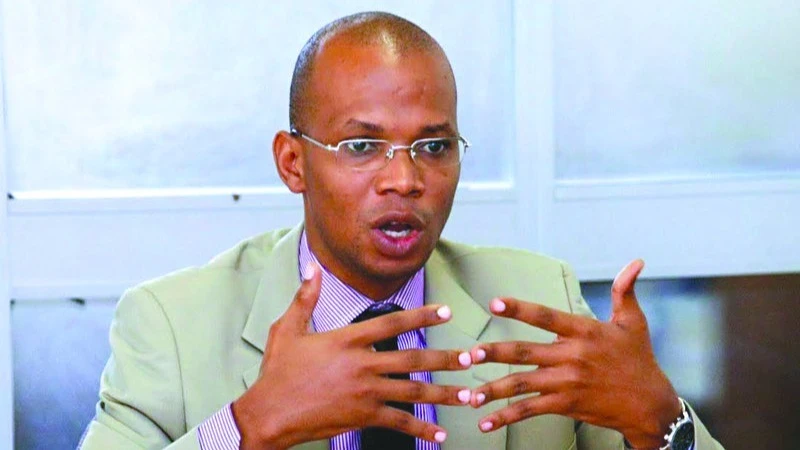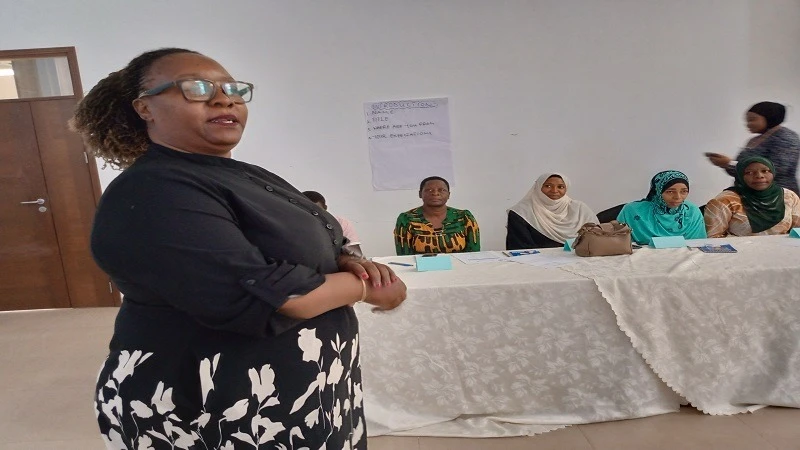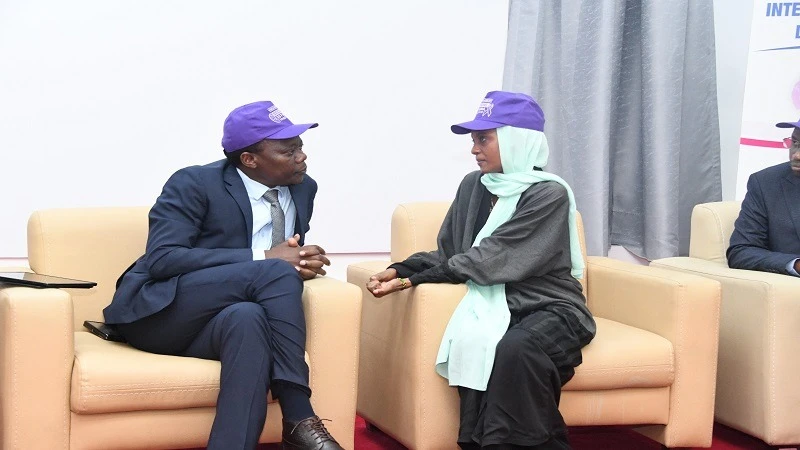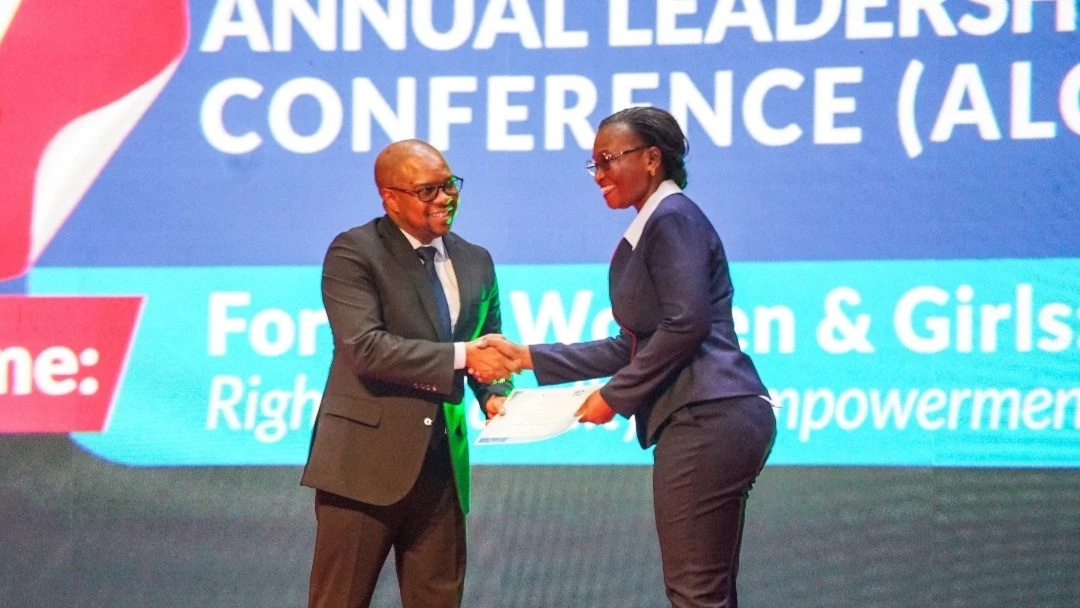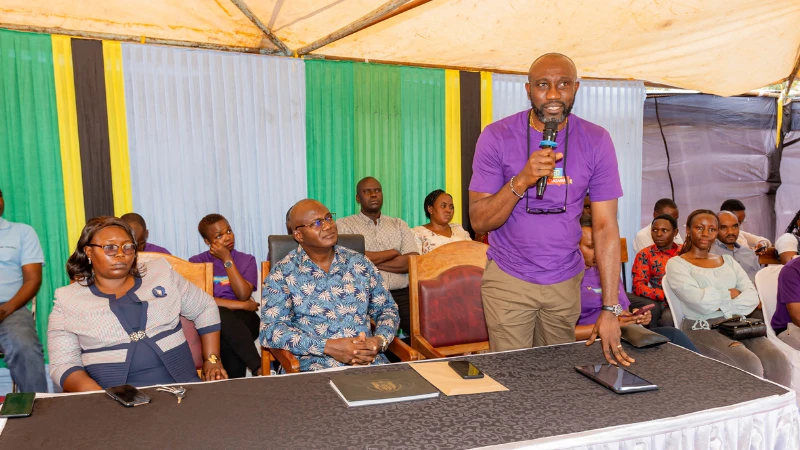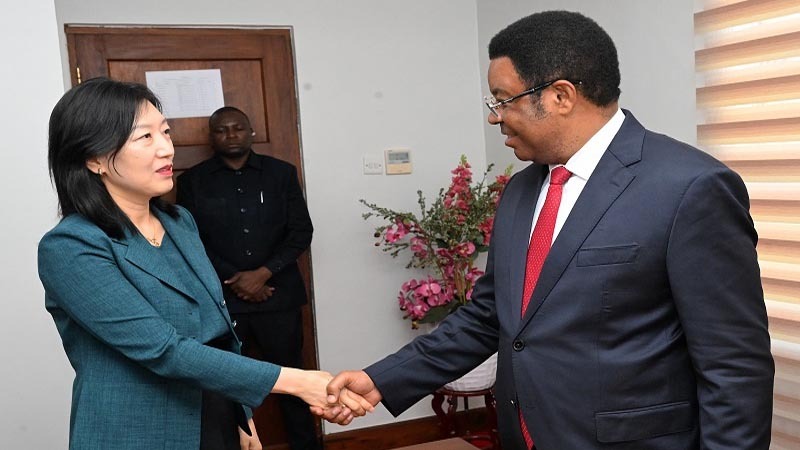Government’s bold move: 11,015 new teaching positions to tackle nationwide education crisis
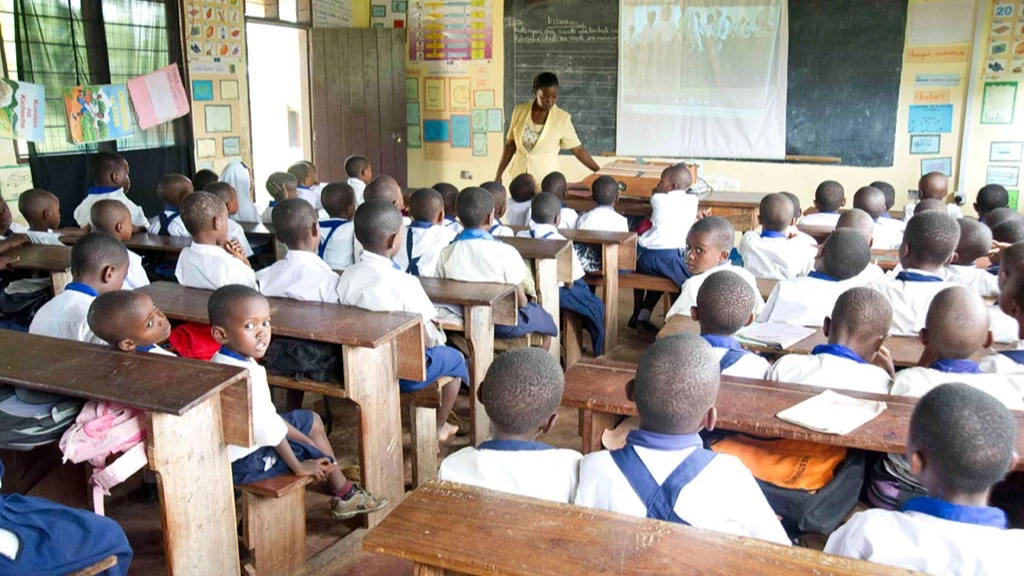
THE Public Service Recruitment Secretariat has unveiled a groundbreaking plan to fill 11,015 teaching positions across Tanzania's councils. Signed by the Acting Secretary of the President’s Office, Public Service Recruitment Secretariat, on behalf of the Regional Secretariats and Local Government Authorities, this announcement marks a significant move to tackle the country's severe teacher shortage.
Released on July 20, 2024, the announcement outlines a strategic initiative to not only address the pressing need for educators but also to enhance the quality of education nationwide. The Secretariat's Public Relations Officer, Baraka Samson, confirmed the application process is now open, following the recent completion of applications for 9,483 healthcare sector positions.
Public Service Recruitment Secretariat's Public Relations Officer, Baraka Samson, confirmed the opening of applications following the deadline for healthcare sector job applications. On July 7, 2024, the Secretariat invited Tanzanians with the requisite qualifications to apply for 9,483 positions in the healthcare sector, with the application window closing on July 20, 2024.
The latest announcement, referenced as JA/9.259/01/B/14, details that 2,851 of the newly advertised positions will be for Grade IIIA teachers.
These positions are distributed as follows: Njombe (62), Mtwara (153), Dodoma (85), Shinyanga (115), Songwe (101), Iringa (56), Manyara (78), Tabora (116), Singida (110), Tanga (113), Kagera (133), Katavi (99), Rukwa (76), Simiyu (120), Mara (173), Geita (90), Ruvuma (140), Kigoma (129), Dar es Salaam (19), Pwani (68), Arusha (116), Mwanza (134), Morogoro (129), Kilimanjaro (124), Mbeya (217), and Lindi (95).
The majority of these positions are intended for early childhood, primary, and secondary school teachers, with a significant number allocated to mathematics and science subjects. Furthermore, positions for vocational education teachers have been made available in certain councils, coinciding with the implementation of the 2023 Education and Vocational Training Policy.
Applicants for these positions must be Tanzanian citizens under 45 years of age, except for those already employed in government positions. Retired public servants are not eligible unless they have explicit permission from the Chief Secretary.
Requests must be submitted electronically by August 2, 2024. This recruitment drive comes as Tanzania faces a dire teacher shortage, with a deficit of 271,025 teachers from early education to secondary schools, according to the President’s Office of Regional Administration and Local Government (PO-RALG).
Deputy Minister of PO-RALG, Zainab Katimba, reported that between 2020/21 and 2022/23, the government hired 29,879 teachers, including 16,598 for primary schools and 13,281 for secondary schools.
Despite these efforts, the National Treasury’s statistics (2022) reveal the government spends approximately Sh700 billion monthly on wages, up from Sh 600 billion in 2017. This increase in the wage bill, without corresponding salary increments, raises questions about the criteria for employment and the influence of political and bureaucratic networks.
Recent employment announcements by PO-RALG have sparked concerns among graduates. For instance, teachers who completed their training in 2016 have struggled to secure jobs, while those who graduated in 2021 are celebrating new positions. This disparity raises questions about the fairness and transparency of the hiring process, with allegations of corruption and favoritism.
As of March 2022, the demand for primary school teachers was 274,549, based on a ratio of one teacher per 60 students. However, only 173,591 teachers were available, leaving a shortfall of 100,958, which is 36.77 percent of the requirement.
For special needs education in primary schools, 3,631 teachers were needed, but only 1,517 were available, resulting in a 59.02 percent deficit. In secondary schools, the demand was 159,443 teachers, with a shortfall of 74,743, or 46.87 percent.
Given the ongoing teacher shortage, the government faces a critical choice: maintain high academic standards to ensure a cadre of well-trained, competent educators, or relax these standards to fill vacancies with partially trained personnel. The latter could jeopardize the quality of education.
Renowned African scholars such as Dr. Thomas Mkandawire and Prof. Adebayo Olukoshi emphasize the importance of rigorous employment criteria and robust economic policies to ensure sustainable development.
Mkandawire’s studies on employment patterns in Africa highlight the need for transparent and merit-based hiring practices, while Olukoshi’s work on economic governance underlines the impact of equitable employment on national stability and growth.
Election season is fast approaching, and employment opportunities are turning into political scorecards. Politicians are eager to showcase their commitment to pressing issues. The recent announcement of 11,015 teaching positions by the Public Service Recruitment Secretariat isn't just about addressing the urgent need for teachers. It's a strategic move to boost political standing by demonstrating tangible progress in education and employment.
Balancing the sheer number of hires with the quality of education remains a critical challenge. The stakes are high, as the future of Tanzania’s education system depends on placing capable and well-trained teachers in classrooms.
Renowned African scholars, such as Dr. Thomas Mkandawire and Prof. Adebayo Olukoshi, have long emphasized the importance of merit-based hiring and robust economic policies in achieving sustainable development. Mkandawire’s extensive research into employment patterns in Africa highlights the necessity for transparent hiring practices, while Olukoshi’s work on economic governance underscores the critical role of equitable employment in ensuring national stability and growth. This theoretical framework becomes particularly relevant in light of the current recruitment drive within the education sector, which is poised not only to address the immediate teacher shortage but also to enhance the overall quality of education and solidify political commitments as elections approach.
In developed countries, handling teacher shortages often involves a multi-faceted approach, incorporating both short-term and long-term strategies. For instance, the United Kingdom has implemented several initiatives to manage teacher shortages, such as the introduction of financial incentives for teachers willing to work in underserved areas and the creation of accelerated training programs for new educators. The UK government has also invested significantly in professional development programs, ensuring that teachers remain up-to-date with the latest pedagogical methods and technologies. Similarly, the United States has seen success with its Teach for America program, which recruits high-achieving graduates to teach in low-income communities, often with significant financial and career development support.
Another effective strategy employed by developed countries is the use of online teaching and technology to address gaps in education delivery. The rise of online education platforms, such as Coursera and Khan Academy, has transformed how education is delivered, making high-quality resources accessible to students regardless of geographical location. Countries like Estonia have leveraged technology to enhance educational outcomes, integrating digital tools into the classroom to create interactive learning environments. Online teaching not only alleviates the burden on physical classroom spaces but also allows for personalized learning experiences tailored to individual student needs.
However, the implementation of online teaching brings with it both opportunities and challenges. On the one hand, it can address teacher shortages by providing additional resources and support, enabling teachers to reach more students than they could in a traditional classroom setting. On the other hand, it requires significant investment in technology infrastructure and training, and it may exacerbate existing disparities if not all students have equal access to the necessary devices and high-speed internet.
The government’s proposal to incorporate online teaching into the education system is an important step towards modernizing education and addressing teacher shortages. Yet, it is crucial to ensure that this transition is managed effectively to maximize its benefits and mitigate any potential drawbacks.
The issue of job opportunities for graduates is another critical concern. The Higher Education Students' Loan Board has emphasized the need for graduates to secure formal sector employment, both to harness their potential and to ensure they can repay their educational debts. The failure to provide sufficient job opportunities not only impedes the economic stability of these graduates but also undermines their contributions to the economy. Without viable employment options, many graduates may struggle to meet their financial obligations, leading to increased financial strain and potentially stifling their career development.
The consequences of neglecting this issue are manifold. Economically, it means a loss of skilled labor and a potential decrease in the overall productivity of the workforce. Socially, it can lead to increased dissatisfaction and instability among the graduate population, which can have broader implications for societal cohesion. Furthermore, the lack of job opportunities can undermine the effectiveness of higher education as a tool for social mobility and economic advancement.
In essence, the current recruitment drive presents a pivotal moment for the education system, offering an opportunity to address immediate needs while also setting the stage for long-term improvements. By drawing on successful practices from developed countries, investing in online teaching, and ensuring job opportunities for graduates, the government can steer the education system towards excellence and reinforce its political commitments. This approach will not only address the teacher shortage but also contribute to a more robust and equitable education system, ultimately fostering sustainable development and national growth.
Top Headlines
© 2025 IPPMEDIA.COM. ALL RIGHTS RESERVED











